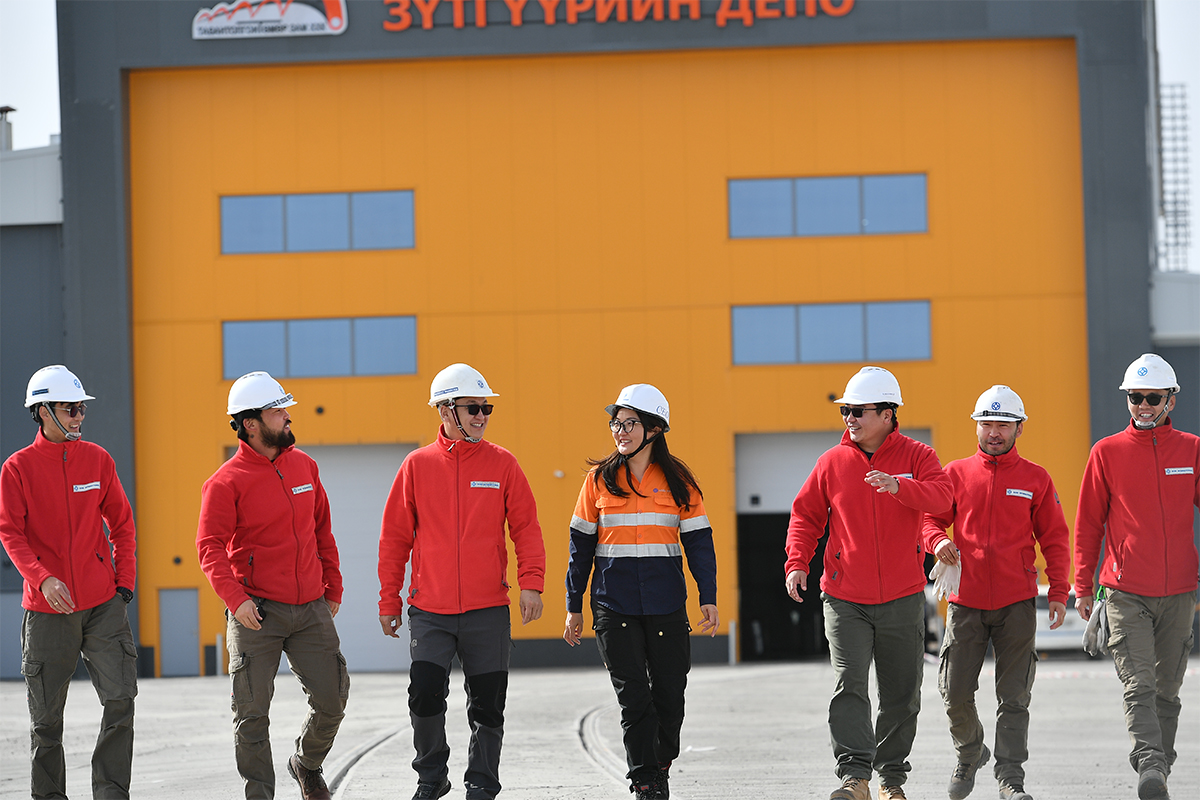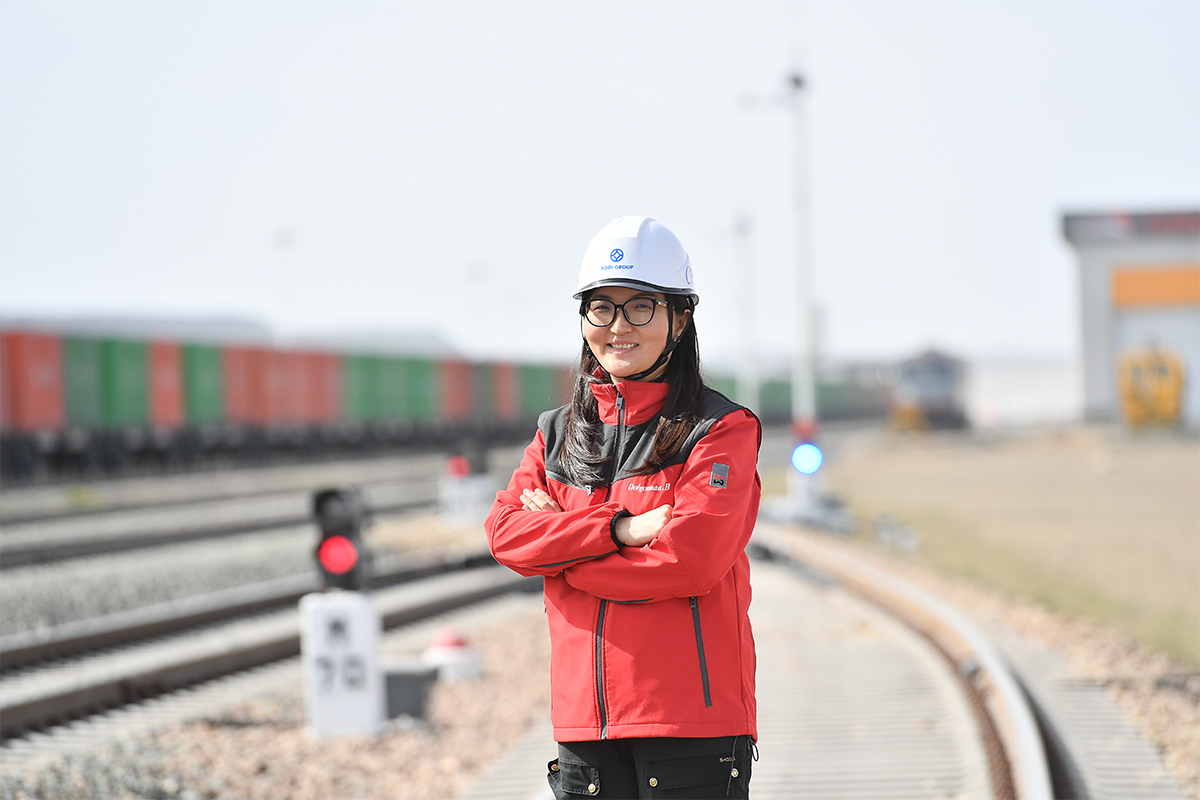Bodi Group, led by CEO Dolgormaa Bukhbat, didn’t let a global pandemic stop them from executing a critical domestic railway project, and now they have their sights set on Mongolia’s future.

When Dolgormaa Bukhbat first joined Mongolian infrastructure giant Bodi Group as an economist in 2004, she didn’t expect that by working her way up through various management positions, she would eventually be asked to oversee a major railway development project in the capacity of CEO in 2021.
Neither could she have fathomed that a global pandemic would eventually turn Bodi Group’s entire project pipeline on its head.
Founded in 1993, Bodi Group was one of the very first private companies to be established after Mongolia transitioned to democracy in 1990. Since then, it has grown into a group company with diverse businesses in infrastructure, urban construction, travel, banking, investment and insurance.
Championing innovation

“Bodi International has always tried to be a pioneering entity to introduce new ideas, new standards and new products into whatever business it was involved in,” says Dolgormaa. “These include the first Mongolian national ID card, the first plastic banking card, the first aeronavigational facility at the UB International Airport meeting international standards, and the first housing complex in Ulaanbaatar meeting Western standards of that time.”
Ever at the forefront of the country’s economic development, the Bodi Group team was thrilled to be involved in bringing Mongolia’s Tavantolgoi-Gashuunsukhait (TT-GS) mega railway project to life in 2019 as EPC contractor. But shortly after construction began in October, the COVID-19 outbreak threatened to halt the project in its tracks.
“Mongolia with its population of three million has very limited human resources to employ sufficiently educated, skilled and experienced engineers and workers for large engineering projects,” Dolgormaa explains. “When experienced foreign workforce and experts became abruptly unavailable due to global lockdowns, we had to use the knowledge and skills of domestic engineers. Many tasks that previously seemed to be impossible became possible by the hard work and determined efforts of local engineers and workers.”

“Bodi International has always tried to be a pioneering entity to introduce new ideas, new standards and new products into whatever business it was involved in.”
“There were multiple stakeholders interested in the completion and operation of this railway, including the mining sector, which produces 25 percent of the country’s GDP and 93 percent of total exporting products. The people of Mongolia were also earnestly interested because the railway will employ more than 2,000 workers, most of which are expected to be local residents, when TT-GS operates at its full capacity.”
So, Bodi Group’s managers, engineers and workers mustered all their determination and grit to get the job done, and the 234-kilometer Tavantolgoi-Gashuunsukhait railway officially launched to great fanfare in September 2022.
“Completion of this project was not only a remarkable tribute to the company’s 30th anniversary, but a tremendous inspiration for all my colleagues to open up new horizons for our vision,” Dolgormaa says.
“The Mongolian Government has adopted the Mongolia 2050 National Development Policy Paper and we believe that Bodi Group will be a capable partner in the large projects outlined in this paper. Our technical capacity, expertise and experience will no doubt be valuable to the successful realization of these projects.”
Steering Mongolia toward self-sufficiency

Bodi Group is currently involved in the implementation of the Buuruljuut Power Plant, which will help Mongolia achieve its goal of being self-sufficient when it comes to generating power and eventually allow the country to export energy.
“This project is designed to be a cornerstone of a much broader vision to develop an industrial complex consisting of mine development along with other components aimed at the production of value-added end products,” explains Dolgormaa.
While she admits Bodi Group is likely to face technological challenges, skills shortages and project funding issues when implementing large-scale projects in the future, she believes the company’s mutually beneficial partnerships will be the key to overcoming these roadblocks.
“When we were working on TT-GS rail project, we eventually built up strong business partnerships with various international companies including Korean rail engineering partners, Chinese rail accessory providers, locomotive manufacturers and suppliers from the USA and Kazakhstan, and wagon suppliers from Russia. More than 700 domestic and overseas suppliers, manufacturers and construction sub-contractors effectively cooperated with Bodi on this project.”
“Completion of [the TT-GS mega railway project] was not only a remarkable tribute to the company’s 30th anniversary, but a tremendous inspiration for all my colleagues to open up new horizons for our vision.”
Dolgormaa points to Bodi Group’s forward-thinking company culture as another key to its ongoing strength and success. “We have a 4B Program under the Bodi human resources development policy,” she explains. “Be Healthy is designed to improve employees’ working conditions and health insurance coverage while Be Happy encourages a healthy lifestyle and recreational activities. Build Engagement is dedicated to entertainment and Build Success involves training and retraining activities.”
Bodi Group also invests significant time and resources into implementing community development and environmental conservation projects. The company regularly recruits workers from local communities and engages local companies, provides university scholarships for students in need, supports Gobi National Park in times of emergency, runs a vital Save the Fir Project, and built a reservoir to help manage flash floods.
“Our company motto is ‘Towards tangible success’ where everyone does their fair share to achieve a common goal,” explains Dolgormaa. “For us, a successful project is one which not only makes its participants winners, but makes the local community and the natural environment winners too.”
Fast facts
- Bodi Group’s completed and ongoing projects include the 234-kilometer Tavantolgoi-Gashuunsukhait railway mega project and the Buuruljuut Power Plant with installed capacity of 300 MWt extendable to 600 MWt.
- In 2022, Bodi Group established its Research and Development Center to train rail operators and technicians, expand external partnerships, host domestic forums and conventions, and carry out exchange projects.
- The R&D Center has a training hall, rail operation simulators and a library.


